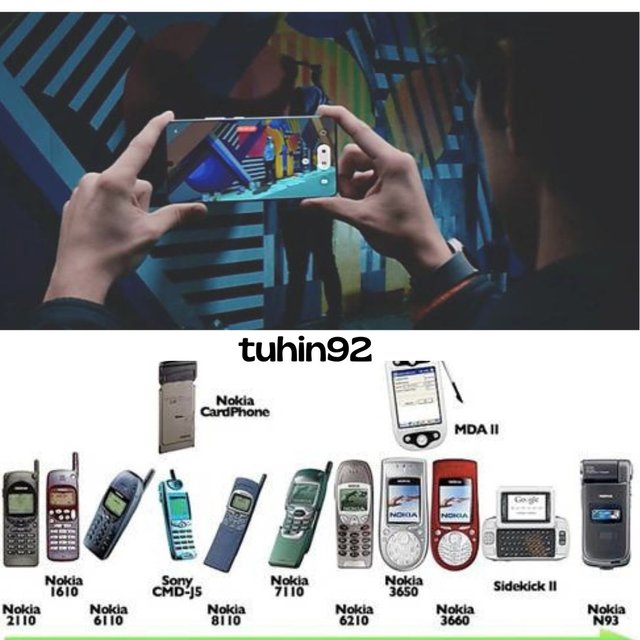MOBILE PHONE

A mobile phone (English: Mobile phone) is a communication system that uses wireless waves. The term "mobile phone" refers to both the mobile phone or cellular phone system and the handset used by the customer. Apart from mobile phones, these handsets are called cell phones, handphones, and microphones in Bengali. This phone set is "portable" or mobile. This phone is named "mobile phone" because it can be easily carried and used anywhere. Mobile is a virtual electronic device for people nowadays. All kinds of communication can be done through it, and it can be taken to any part of the world, and communication with people on the other side of the world can be maintained. Mobile phones use computer technology along with radio waves to talk. As a result, it has become possible to introduce other services in addition to talking, such as short messaging - SMS or text message services, MMS or multimedia message services, e-mail services, Internet services, infrared or infra-red, blue tooth services, cameras, gaming. Business or economic, practical software, etc. Smartphones are mobile phones that provide these services and some of the features common to computers.
History
Predecessors initially used the evolution of mobile phones, Cellular phones with analog radio communications from ships and trains. Dr. Martin Cooper[1] and John Francis Mitchell, working at the Motorola company, are credited with inventing the first mobile phone. In April 1973, they were first able to make a call using a hand-held phone weighing about 2 kg (4.4 lb).[5] Dr. Martin Cooper, The first commercial version of the mobile phone, hit the market in 1983; the phone was called the Motorola DynaTAC 8000x.
Expanding use
Between 1990 and 2011, mobile phone users worldwide increased from 12.4 million to more than 6 billion. About 87% of the world's population is covered by mobile phone communication.
Mobile phone networks
Mobile phone system operators divide their service area into several areas or cells shaped like triangles, squares, pentagons, or hexagons. Usually, hexagonal cells are more common. Mobile service in each of these regions is provided by several network stations (usually what we know as mobile phone company antennas). Network stations are again usually located at each corner of the cells. It is also known as the "Cellphone" because of its service divided into many cells. As mobile phones communicate through radio waves, they can provide seamless connectivity over large geographical areas.
characteristics
Although mobile phone manufacturers are constantly adding many attractive features to make their phones unique, all mobile phones have some basic features that are essential to them. These are –
Electric cells or batteries - act as the power source of the phone.
Any input method enables phone interaction or two-way communication with the phone user. The keypad is the most widely used input method, but the touch screen has recently gained popularity.
General mobile phone service through which users can talk or send short messages.
GSM phones have a SIM card. Some CDMA phones have a RIM card.
Each phone has a unique IMEI number that identifies the phone.
Low-end mobile phones often feature phones and offer only basic telephone communication facilities. And some mobile phones offer more advanced features and services like computers, called smartphones.
Many mobile phone brands are designed for specific users. For example, Blackberry developed a specialized e-mail facility for multinational or corporate users. Sony-Ericsson's 'Walkman' series or 'Cybershot' camera phones specialized for listening to music, Nokia's N series multimedia phones and iPhone series or Samsung's Galaxy S series.
usage
Many mobile phones are being used as smartphones. Apart from talking, such phones are also being used for other purposes.
sending and receiving e-mail, SMS, or text messages;
calculator, currency, token functions;
Internet;
playing games;
taking pictures and videos;
watch time;
recording speech;
Booking train tickets
Booking Air tickets
Payment of electricity/gas bills etc.
Money Exchanges

This is a one-time notice from SCHOOL OF MINNOWS, a free value added service on steem.
Getting started on steem can be super hard on these social platforms 😪 but luckily there is some communities that help support the little guy 😊, you might like school of minnows, we join forces with lots of other small accounts to help each other grow!
Finally a good curation trail that helps its users achieve rapid growth, its fun on a bun! check it out. https://plu.sh/somland/